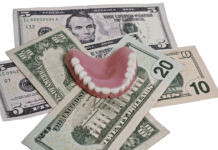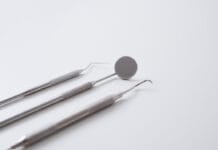Several years ago, it occurred to me that I was a minimizer. I heard myself say things to my patients, such as, “You have a little bit of bleeding. I am just going to clean your teeth, and you might want to think about getting that cavity treated.”
These minimal instructions and suggestions began to stand out when I transitioned into education. Walking the hall of the clinic of the dental hygiene school, I started to hear students use the same language, and it dawned on me: I am teaching them to be minimizers. They are not only diminishing the patient’s disease and needs but devaluing their credentials.
I began to ponder this phenomenon and wonder where it started. Was it way back with our original dental hygiene sisters, Irene Newman and company? How and why has this language been handed down for decades without some sort of intervention from dental hygiene faculty?
Too Concerned About Patients’ Feelings?
Upon questioning the students about their chosen narratives about a patient’s disease process, a standard answer is that they do not want to hurt their feelings. They do not want to make the patient feel embarrassed or inadequate about themselves. They choose to minimize the condition to boost the patient’s confidence in these cases.
Thinking further about this reasoning, I started some deep introspection around my reasons for being a minimizer. Early in my career, it seemed that I somewhat aligned with my students in that I wanted my patients to feel good when they left the appointment. Those early behaviors stuck, and I had to work to change my dialogue once I realized the repercussions of my words. In hindsight, I can see that this was a disservice to my patient and my profession.
Using words such as “a little bit” or “I am just” teaches our patients that what we do for them is not that important. It teaches them that we are just tooth cleaners who like to lecture them about flossing. It teaches the rest of the dental team, including the dentist, that my services are not valuable. We are all highly educated clinicians with extensive knowledge of the oral cavity and all of the human systems.
Yet, we continue to sabotage our treatment recommendations with words like “just” and “little.” We discredit our work when we say “a cleaning” at the morning huddle when we perform a quadrant of non-surgical periodontal therapy on a heavy accretion patient. This tells our coworkers that we provide a cleaning service ‒ not a medically necessary treatment (in which you spent at least two years training) ‒ for the patient’s overall health.
As health care professionals, it is time we start owning confident and courageous language when speaking to patients and team members.
How to Stomp Out Minimizing
Build self-confidence ‒ Having confidence in one’s abilities can shine through patient education and communication. If a lack of self-confidence in your clinical skills or knowledge keeps you in the minimizing language rut, take some time to self-reflect. Are you faking it but never making it when it comes to a particular clinical proficiency? For example, you purposefully overlook the curved ultrasonic inserts during non-surgical periodontal therapy because you do not quite feel proficient using them. Perhaps there is a course you need to take to improve specific skills.
Comparing ourselves to others is a sure-fire way to squash confidence. If you compare yourself to another hygienist, you may feel somewhat inferior and lack the certainty to deliver news to the patient or a clinically accurate briefing during the team huddle. Keeping ourselves small when we feel outshined by someone else will undoubtedly douse confidence.
Get out of the comparison game by recognizing your strengths and standing self-assured in what you have to offer as a clinician. We each bring something different to the table that should be celebrated.1
Thoughts are potent. Engaging in positive self-talk is a key element in boosting confidence. Negativity in our heads quickly spins out of control, diminishing self-compassion. When you catch yourself in negative self-talk, take a moment to stop and reframe.1
Instead of thinking, “The patient doesn’t care what I have to say,” reframe the thought and change it to, “My professional opinion is valuable, and what I have to say is important to the patient’s health and life.” Do not let yourself be continuously driven down the path of negative inner dialogue. Cognitive behavioral therapy (CBT) is an evidence-based tool used to teach individuals how to retrain thoughts, which changes feelings. If you chronically struggle with negative self-talk, consider reaching out to a licensed therapist for counseling, such as CBT.2
Practice, practice, practice ‒ It is difficult to break out of old learned behavior patterns. Once we have used a particular vocabulary and dialogue with our patients and team members for many years, choosing a new language pattern can feel almost impossible. It may even feel ingenuine at first because it is not how our brains operate.
The most effective way to implement new behaviors, such as new ways of explaining disease to patients, is simply doing it. I said simply, not easily. This takes intention, practice, and repetition. You may stumble over your words or have that nagging feeling of “making the patient feel bad” at first. With practice, this self-doubt will pass. You may stumble over your words at first, but realizing that the new language benefits the patient’s health can help this self-doubt pass. You will soon be a minimizer-avoiding pro.
Personal responsibility and beneficence ‒ I often speak on clinical burnout, and one point I drive home is personal responsibility. We have a personal obligation to do the things necessary to care for our minds and bodies to stay healthy. We also have a unique and professional responsibility to our patients to deliver the truth about their health and treatment outcomes.
I believe that anyone reading this article would want to hear the truth about a diagnosis from their physician. The whole truth is the only way we can be empowered to advocate and take control of our health. This also applies to every patient who sits in our chair. Beneficence is taking action to promote good to others.3 We take an oath of beneficence when we become dental hygienists. This principle includes delivering hard-to-hear information even if we believe it might be upsetting news for the patient. Each person has the right to be empowered with the knowledge to lead them to behavior change and better health.
In Closing
When you catch yourself using minimizers, stop and reflect. Ask yourself the purpose behind the language and how you can change it to be confident in delivering information. Remember that you are a highly trained medical professional who worked hard to earn your credentials. Stand tall in that morning huddle. Own your smarts, hygiene sisters and brothers, and never minimize what you bring to the table.
Need CE? Check Out the Self-Study CE Courses from Today’s RDH!
Listen to the Today’s RDH Dental Hygiene Podcast Below:
References
- Morin, A. (2024, April 25). How To Be More Confident: 9 Tips That Work. Verywell Mind. https://www.verywellmind.com/how-to-boost-your-self-confidence-4163098
- Riggenbach, J. (2012). The CBT Toolbox: A Workbook for Clients and Clinicians. PESI Publishing and Media.
- The Principle of Beneficence in Applied Ethics (2019, February 11). Stanford Encyclopedia of Philosophy. https://plato.stanford.edu/entries/principle-beneficence/












